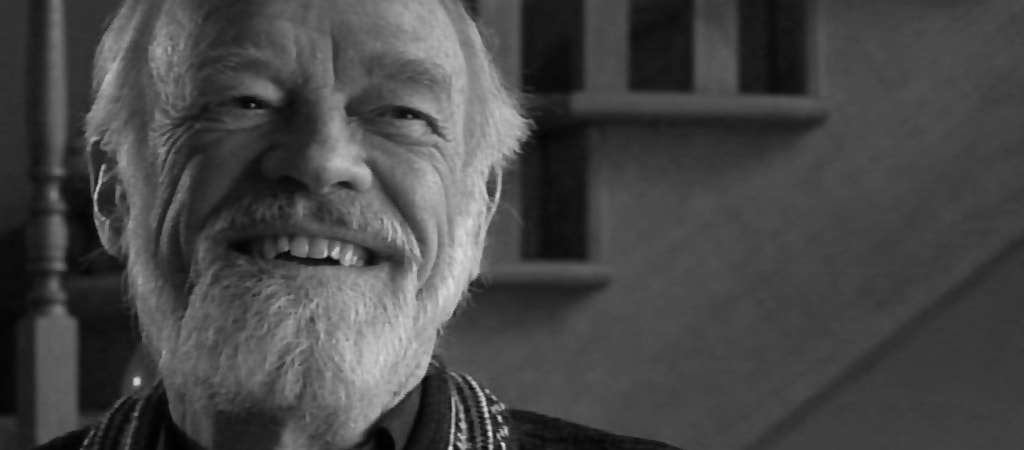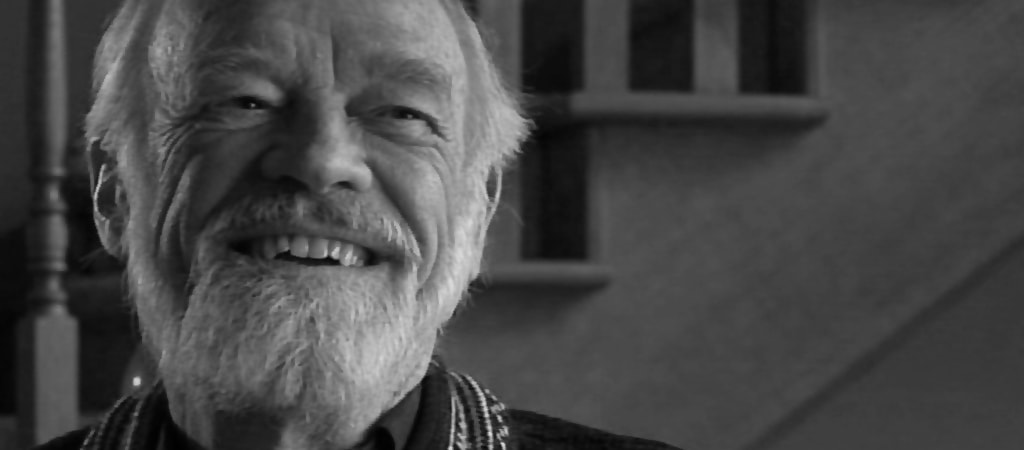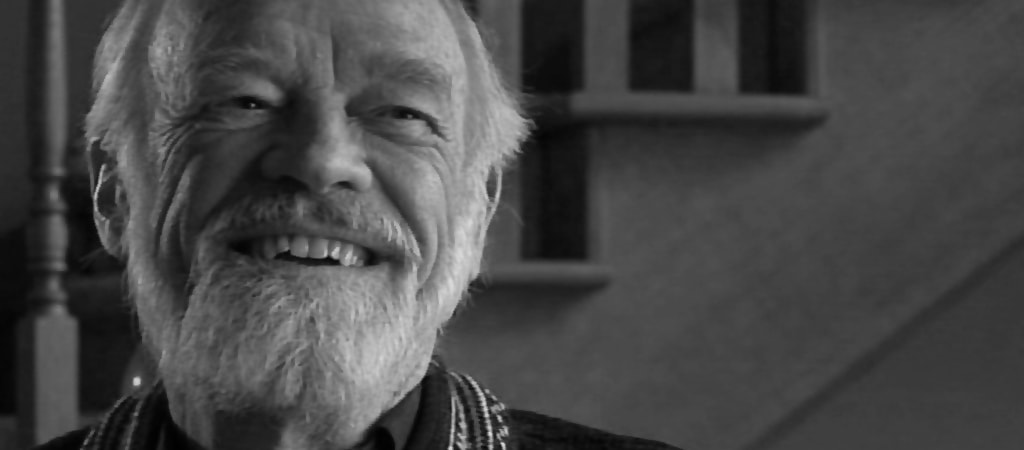|
Wecome to Logia, the personal blog of Paul Hartwig. Reflections and resources to enhance understanding of what God has revealed of himself in Scripture.
|
|
How can we define pastoral work? It is my conviction that no writer has done it better today that Eugene Peterson. The shape of this work has three angels: the pastoral imagination and practise is a life-long calling to a cultivation of attentiveness, reverence and humility before the realities of God (prayer), His revealed Word (Scripture) and His people (Church). We stagger as we affirm with C S Lewis that 'the inside is bigger than the outside'. But the means of our ministry is a personal participation in these 3 continents. The pastoral call is a counter-cultural call to is personal and participatory. This is what Peterson calls the 21c pastor back to in all his writings: paying attention to the Triune God, to Scripture and to People.
This call to slow down to pay attention to the particulars before our face came home vividly to me whilst I was swimming in the gym pool. It dawned upon me that I was not taking in what I was doing, I was simply cycling through the present to get to the next thing, and so on. I was not actually enjoying swimming one length because I had to get finished and get onto the next thing. I was taking things for granted. This was robbing the present to pay the future! Hit by my criminal inattention to present things, I went into the shower and consciously slowed down to consider present conditions and realities around me. In the shower I looked up and contemplated where I was. I stopped and looked around, taking in what was before my nose! That unnecessary pause in the shower has become a sacramental act to remind me to slow down, open my eyes and 'smell the roses' where ever I am; to be immediately present to things. I think I was then getting what Peterson was trying to communicate to me when he said: 'every step an arrival'. Don't be so bussy to try to get ahead that you have no time for the present. I realised that the pastoral call is to do exactly what I had done in the gym: pay attention (to God, Scripture and People). Attention to God's written revelation is the second angle defining our call. Peterson defines exegesis as a sustained act of humility, where we love God enough to stop and listen to what He is saying. Once again, he directs us a particular manner of reading Scripture, a way congruent with the nature and objective of Scripture itself: formatively. We read not merely to harvest information, but to personally involve ourselves in the text that forms us as worshippers. As we read a Cooking book or Gardening book, so we should read to Bible. We should give particular notice of the metaphors and stories of Scripture. Through them we are personally pulled into a participatory believing, listening, loving way of life that is, above all local and personal: prayerful! Attention to God's people. Peterson warns us of the depersonalising tendencies of our culture. It is so easy to trivialize people into producers and performers. We must personalise at any cost, and salvage the glories and complexities of the congregation. There are no mere people, no 'ditto's in souls' (Baron von Hugel), no reduction to stereotypes and no abstractions when it comes to people. They are irreducibly personal, “not problems to fixed but mysteries to be honoured and revered. Who else in the community other than the pastor has the assigned task of greeting men and woman and welcoming them into a congregation in which they are known not by what is wrong with them but by who they are, as they are? Worshippers in the image of God”. Our attention to congregation is attention to names and individuals, to creating a community where people can be loved for who they are not for what they can do. As a church planter, Peterson expected 'green-berret' Christians, a gathering of the cream of the crop to in his new church. The realities of the congregation soon set in and he realised that pastoral work was a call to the trenches of ordinary life, witnessing to transcendence in the smog of rush-hour traffic and coffee-shops in the Mall. These people, as they are. The pastor’s main task is to help others to pray (Under the Unpredictable Plant). Calling others to pay attention. Pastors, fight with blood-earnest vigour to keep your hold on these three things, and in the singular manner of personal and perceptive participation. Amidst such cultural conditions, a prohetic all today is to pioneer in attention to things! A call to a certain quality of life. Slavage a biblical identity. Pastor is not a job to make a living; it is a way of living.
0 Comments
G K Chesterton, that great English writer of the early 1900’s, ‘had a fancy for writing a romance about an English yachtsman who slightly miscalculated his course and discovered England under the impression that it was a new island in the South Seas’ (Orthodoxy). His hilarious parable has become for me a pastoral parable useful as a cure for the common pastoral itch of moving on to another church.
In Chesterton’s story I see a restless pastor who moves from church to church only to discover that his original congregation presented (though camouflaged) all the conditions necessary for him to satisfying his calling on; his romantic idealism and wanderlust found gratified on the pedestrian realism of a very ordinary local church. In my parable I see countless pastors perpetually searching for their dream church when the real one back at home is exactly that! In the books of Eugene Peterson on pastoral ministry we have a chaste power to discipline the desultory mind of any pastor and rivet it on the glories that are right under his nose in the local congregation. This power to unmask the ‘ordinary’ and reveal the God-colours and Christ-realities of church life is what Peterson is brilliant at. Of primary importance in the pastoral call is attention to God. Peterson is convinced that the quality of the activity of worship in the pastorate determines its health. God Himself constitutes our work, and devotion and attention to Him is the defining context within which we fulfill our calling. This work of worship is not preparation to our ministry, it is the ministry. Paying attention to the Trinity and what Christ is doing and then leading others into this divine reality is our focus. Worship is the centre and circumference of pastoral work. Thus in the truest sense, Peterson’s writings call the pastor back to being a worship leader in the congregation, away from the cultural distortions and idolatrous attractions of our time. This means we have to know God first-hand: ‘I want to do the original work of being in deepening conversation with God... I don’t want to live as a parasite on the first-hand spiritual life of others, but to be personally involved with all my senses, tasting and seeing that the Lord is good’ (The Contemplative Pastor). Pastoral work is thus a personal participation in God revealed in Christ and is today diametrically opposed to the insidious temptation of the managerial, the pragmatic and the success driven models of ministry. Judging the quality of pastoral work in terms of results in the pews and efficiency in leadership rather than in terms of prayer and intimacy with God reveals the intrusion of prevailing cultural assumptions in our ministry. Don’t be so busy getting ahead in your ‘work’ that you do not cultivate a deepening relationship with Christ. So Peterson reminds us that the definition of ‘pastor’ should never be socially or vocationally defined, but always and only theologically! God is the object and subject of our calling. Peterson in Working the Angles reminds us of the difference between a job and a profession. ‘A job is what we do to complete an assignment. Its primary requirement is that we give satisfaction to whoever makes the assignment and pays our wage... But professionals and crafts are different. In these we have an obligation beyond pleasing somebody: we are pursuing or shaping the very nature of reality, convinced that when we carry out our commitments we actually benefit people at a far deeper level than if we simply did what they asked of us.’ Employees have job-descriptions. Professionals rather have callings to something beyond a task (which ‘work hours’ cannot circumscribe). Professionals are called to the integrity of the matter itself: health (not just making people feel good); justice (not just winning a case), learning (not merely helping people pass an exam) etc. With pastors, our professional subject matter is God and we dare not pervert our ministry into a job. Our vocation is irreducibly God-focussed and priestly. It certainly entails other dimensions, but this is our sovereign concern. I close with Peterson’s favourite image of the pastor (The Contemplative Pastor). It is taken from Herman Melville’s Moby Dick. The scene is of a small whaleboat scudding across the wild sea in pursuit of the whale. All the sailors are labouring fiercely at the oars. In the boat however one man does nothing. He is the harpooner. He is quiet, poised, and waiting. Melville adds this sentence: “To insure the greatest efficiency in the dart, the harpooners of this world must start to their feet from out of idleness and not out of toil”. Our ‘idleness’ is the practise of attention to God. No writer has helped me understand my task and identity as a pastor as Eugene Peterson has. The light that has shone forth from his many books in such relevant clarity and force has convinced me that he is one of today’s pastoral prophets, a pastor’s pastor with a message from God.
During my annual leave last year I took out his latest book 'The Pastor' from the Cape Town Baptist Seminary and listened with much relish as my wife read it to me. It so encouraged me as a pastor that I wanted to terminate my leave and get back to my congregation! In his biography he distills for us his essential convictions of what this mysterious calling of pastor is all about. All his pastoral books (there is a series of five books available) introduce us to an experienced guide who partners us in our endeavour to keep going due-north in this vocation as pastor. I would like to share with you in outline some of his pastoral confessions which I think are most necessary for us as pastors to hear in our time. I hope they will be as salt in your mouth sending you to drink first hand from this pastoral series. Though Peterson is rightly famous for his most phenomenal achievement The Message, his life’s work has been radically pastoral. The Message grew out of his private attempts to get the message of Galatians into the lives of his TV indulgent congregation. He wanted Galatians to strike home to each of them as if it was written in the idiom of the TV guide or daily newspaper. So, he started working from the Greek text and transposed the meaning and message of the Greek text into the idiom of 20th century North American. His pastoral ambition was to get his congregation into Galatians in such a way that “after two years they wouldn’t know whether they were living in Galatia or America”. What he did in Galatians for his Bel-Air Presbyterian congregation, he went on to do in the other 65 books of the Bible for the entire world. The result was The Message - his greatest written pastoral act. Besides The Message, his writings in the more narrow field of pastoral theology and practise is, I believe, of similar significance. His distinctly personal help for pastors will be what I will share with you on in three issues of Baptists Today. The greatest help that Peterson has given to me has been in the forming of a pastoral imagination. He has the ability to envision for us our vocation as pastors in a way that sends disaffected pastors back to their problem-riddled congregations with a hopeful realism born of understanding the staggering nature of what congregational life entails. He does this by insisting on a pastoral imagination. Imagine yourself (!) walking onto a construction site. To your left and right are brick layers at their work. You approach one and ask him what he is building. ‘A wall’ he replies. You walk over to the other worker and ask him the same question. ‘A Cathedral’ is his answer. What is the difference between the two brick layers? Imagination. The way we look at things before us, how we see things, will determine our experience of the pastoral call. The imagination is our internal capacity to see the bigger picture and to connect the particular into the wonderful God-realities of His word and world. We are so busy rushing on in life, that we do not stop, look, and comprehend the staggering magnitude of the realities before us. Peterson’s subtitle for his biography The Pastor distils this: ‘Every step an arrival’. When we pay attention to the particulars that are before us we can begin to appreciate what is here and the workings of grace in the present (i.e., the congregation). Peterson learned this inductive imagination from his father’s butcher’s shop. ‘Carving a quarter of beef into roasts and steaks was not a matter of imposing my knife-fortified will on dumb matter but respectfully and reverently entering into the reality of the material... respecting the material at hand... a submission of the will to the conditions at hand, a cultivation of humility.’ Attentiveness to present conditions - which is the focus of love - is essential to pastoral work and imagination. We pastors work with invisible and submerged realities that need to be seen imaginatively. This is why that great teacher of the Christian imagination C S Lewis put these words into the mouth of Lucy in his last book in the Chronicles of Narnia: ‘the inside is bigger than the outside’. This is the language of imagination. I think that what C S Lewis and G K Chesterton did for the culture of the mind, so Peterson is doing for the culture of the congregation. Imagination is almost like faith. It is that which connects us to a bigger story, it is the bridge between what we see and what we do not see; it pulls us from what we immediately see into what we don’t see. When imagination involves trust and participation in the unseen, when we walk over the bridge and respond to God personally, then it becomes faith. Imagination and Faith are twins and always belong together - though imagination is the first-born! Hebrews 11 is clear evidence for this couple and their order. Yet for us who are pastors, we are not out doing acts of faith in Palestine like our predecessors in Hebrews 11, our particular terrain is the congregation; the immediate visible realities before us are people, the congregation. In our place, the bigger imaginative picture of the nature of this congregation in terms of its truly glorious dimension of Creation, Redemption and Consummation are revealed for us in Scripture. And because we pastors are called to be sentinels between the two horizons of the visible and invisible continents, we stand or fall by our ability or disability to see things clearly and significantly enough. “I charge you in the presence of God Timothy.....”. What Peterson does in all his pastoral books is to call pastors back to the angles of pastoral imagination: attention to God, attention to His Word and attention to His people. |
Categories
All
Archives
May 2023
|




